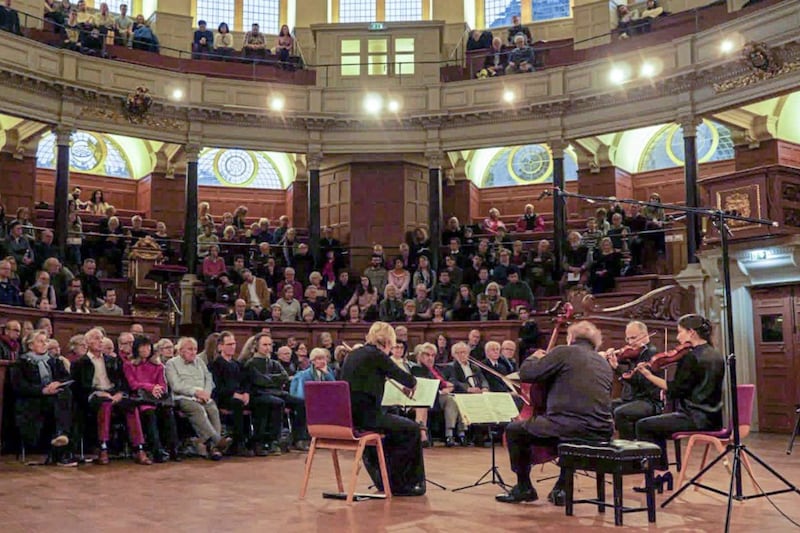Being Beethoven, BBC 4, Monday at 9pm
It’s 250 years since the birth of Ludwig van Beethoven but much of his music is so ingrained in our culture that it appears to the ear like recent pop music.
His piano sonata ‘Moonlight’, for instance, has more than 70 million downloads on Spotify, followed by almost 50 million for Fur Elise.
And there is nobody who wouldn’t recognise the striking openings of his fifth and ninth symphonies.
To mark the birthday, BBC 4 has commissioned a new documentary on the composer over three Monday nights.
Beethoven was the classic child prodigy, damaged by the pressure from his parents, his alcoholic father and losing his mother at 16.
It’s the CV of many hyper-successful but socially inept people.
He performed his first concert at seven, began composing at age 11 and moved from his home in Bonn to Vienna (the then cultural capital of Europe) in 1792 as fame gathered around the 22-year-old.
Mozart had died a year earlier and Haydn, who would mentor him, was growing old so the stage was clear for a new master.
And Beethoven delivered.
So revolutionary was his writing that his short life (he died at 57) created a grand schism in music.
The Hungarian conductor Ivan Fischer said “everyone … everyone” after Beethoven was influenced by him.
“There was music before Beethoven and music after Beethoven,” he says.
He was a narcissist, odd looking, and a “bit of a weirdo” who struggled to form relationships but these difficulties mostly helped his music.
He believed that his benefactors and friends were there to serve his genius as a composer.
He struggled with depression and suicidal thoughts, but felt he had important music in him and it was his duty to get that out of himself before his left this world.
Even the onset of deafness didn’t stop him. He first recognised that he was losing his hearing in 1801 but, in shame, hid it from everyone for years.
By 1816 he was believed to have been completely deaf and when his long awaiting ninth and final symphony was first performed in Vienna in 1824 he had to be tugged by the sleeve and encouraged to turn around so that he could see the audience standing and clapping.
It’s a remarkable story, expertly told. There’s no annoying celebrity “going on a journey” to find out about Beethoven, instead we get the great man's own words (Peter Capaldi). Whether it's iPlayer or old school appointment
TV, don’t miss it.
****
Battle of Britain, Channel 5, Tuesday, Wednesday and Thursday.
We’ve had a lot of television marking second world war anniversaries, but this one, presented by Dan Snow and Kate Humble, was as good as any.
Over three consecutive nights it gave us the minute by minute story of the battle through the eyes of the participants.
First up was August 15, 1940 – the first large air incursion by the Luftwaffe.
Then August 30, the most intense battle of the air campaign, and finally September 15, a significant victory for the British.
In the scale of losses, the Battle of Britain is dwarfed by other major turning points in the war, such as Stalingrad, Kursk, Midway and Hiroshima, but it meant that Britain held out against the all-conquering Nazis and retained a foothold in
Europe for the Allies.
There were lots of moving stories unearthed by the Channel 5 team, including that of Archie McKellar, an apprentice plasterer from Paisley who dreamed of being a flyer and managed to get there.
He led the defence of Newcastle, shooting down three enemy planes, at a time when the life expectancy of a pilot was four weeks.






